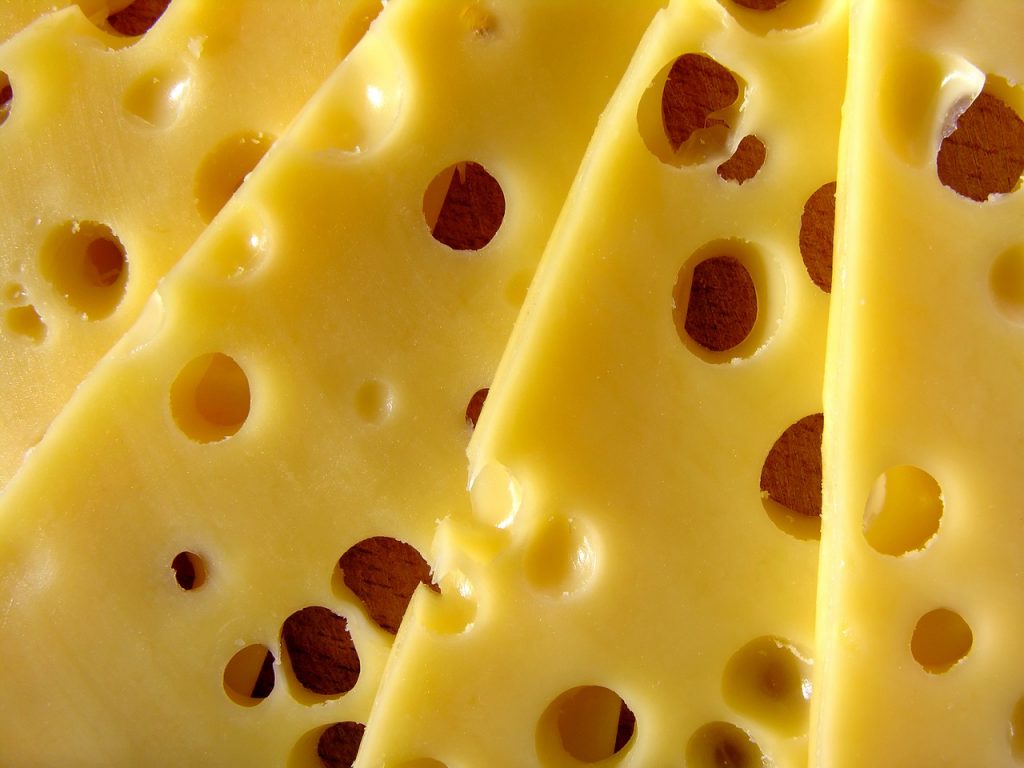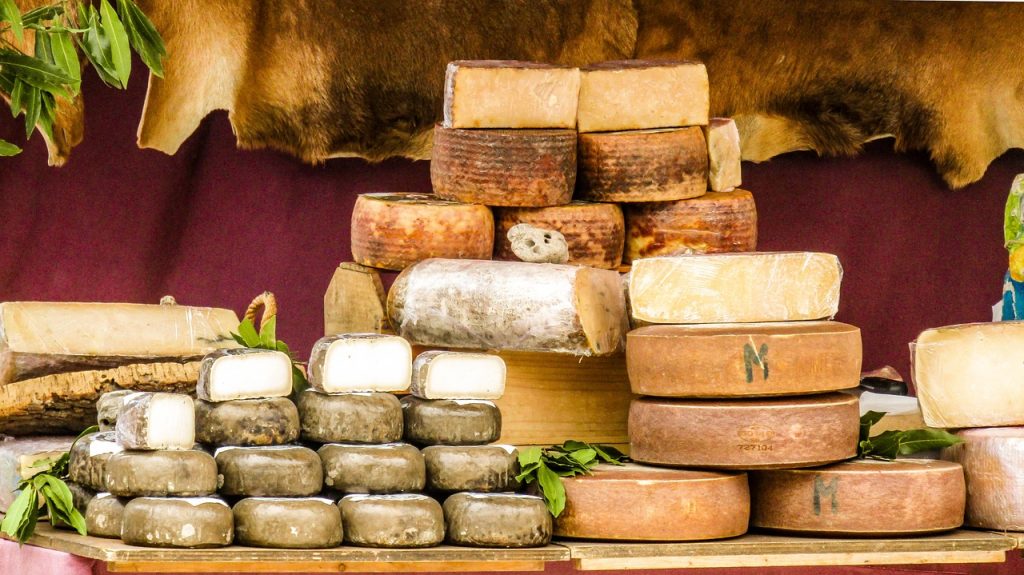Cheese Thieves Swipe Over $20K Worth From Dairy Farm
Food theft is on the rise, dairy farmers are the latest victim after 20K worth of cheese was plucked straight from a farm.
This article is more than 2 years old

When a Dutch dairy farmer walked into his cow milking shed, he immediately knew something was off. Way off. Thieves had broken into the shed and helped themselves to some cheese. The stolen cheese, over 3,500 pounds worth, was valued at around $23,000.
The crime took place at a dairy farm called Torenpolderkaas, which is located in the small town of Fijnaart in Noord Brabant, Netherlands. “They must have been watching us for a while. Our gate is always closed except on the day when the milkman comes by. They must have known that,” said a cheese farmer via Food & Wine of the stolen cheese. “They also passed by our house. I can kick myself for not noticing anything. You just don’t feel safe and that is a very bad feeling. It will really take a while before I regain trust in people.”
If you are thinking that stolen cheese is a rare occurrence, you might be surprised that it happens often enough. The rarity is that seeing it in such large volumes as this one. The crime, though, is a worldwide problem. In fact, according to a Mashed report, about 4% of cheeses are stolen each year, making it the most stolen food item across the globe. Why? Cheese is expensive, no matter where it is purchased, so the resale value of cheese can be lucrative for thieves.
Operation Wine and Cheese consisted of a 2017 Italian sting operation that netted 10 criminals who were behind 168 wheels of stolen cheese. In total, it was worth $110,000. Then there was the 2016 stolen cheese fiasco in the Cheese State of Wisconsin. One heist took in a 70,000-pound haul while another made off with 90,000 pounds.

Apparently stealing cheese is a big business that may continue to get some action. According to the Mirror, organized gangs are at work here. The claim here is that the tough sanctions against Russia for its horrific invasion of Ukraine have prompted gangs to look for items they can no longer get in Moscow and bring them to the black market for sale.
Theo Dekker, Chairman of dairy farmers organization Bond van Boerderij-Zuiverlbereiders, firmly believes the stolen cheese has everything to do with the sanctions on Russia and organized crime. Dekker told the Mirror, “We will need better security for our cheeses from now on. This is not just a simple theft, it’s organized crime.”
Dekker explained that these gangs first visit the dairy farms to scout out the farm and the surrounding areas before they return a few days later to carry out their crime. “We are a bit afraid of this. They don’t shy away from entering a cheese farm with brute force. In no time they fill their bus and leave.”
Dekker says that the stolen cheeses are finding their way to the black market in Eastern Europe before making their way even further east. “We have had reports of cheeses ending up in Russia where no Dutch dairy can be bought because of the economic sanctions,” says Dekker. He also says that the stolen cheese will not be able to be resold in the Netherlands because of a special registration code all Dutch cheeses are required to have.
“The number is pressed into the rind and cannot be removed without damaging the cheese,” Dekker explained. “As a result, the thieves cannot sell the entire cheese in the Netherlands. But yes, if you cut off a piece, you can no longer see where the cheese comes from.” These registration numbers came into play last year as the Bond van Boerderij-Zuiverlbereiders were able to identify some of the stolen cheese being sold online as cheese taken from another dairy farm.
Still, Dekker believes that this latest brazen act of stolen cheese is only the beginning, claiming the thieves caught last year were not as experienced as the ones they are dealing with today. “But those were amateurs and cheese farmers are now up against something bigger.” Because of this, Dekker is telling all Dutch dairy farmers to beef up the security around their farms and keep a watchful eye out for anyone who appears to be scouting out their property.



